November 26, 2024
Fiesta Verde 2024 draws 92 exhibitors, many guests
By Joy Rojas
Tzu Chi Philippines wrapped up another successful staging of its Fiesta Verde, a vegetarian food and lifestyle fair held on November 23 and 24 at Buddhist Tzu Chi Campus, Sta. Mesa, Manila.
Volunteers welcomed a constant stream of guests, who arrived well before the 10 am opening and a few hours before closing time at 7 pm to enjoy delicious meat-free fare and purchase a wide variety of products from 92 exhibitors. For two days, a lively atmosphere was felt throughout the campus, with shoppers exploring booths selling delicacies and ingredients, furniture, houseware and kitchenware, herbal supplements, personal care products, and more. Live cooking demonstrations, games organized by Tzu Chi Youth, and fun activities for the kids were held simultaneously, keeping guests of all ages thoroughly engaged during their visit.
Like previous Fiesta Verdes, this latest one is a fundraiser for Tzu Chi’s charity, education, and medical assistance programs.
But it also impacts the lives of marginalized communities. Waste to Wonder at the Jing Si Auditorium features the handmade products of the wives and single mothers of Tzu Chi Palo Great Love Village, who lost their homes and jobs following Super Typhoon Yolanda (Haiyan) in 2013. Purchasing any of their denim tote bags embellished with inspirational words or hand-painted designs provides income for these women, many of them breadwinners of their family.
The pandemic gave birth to another Waste to Wonder initiative—sturdy and colorful floor mats and stool covers handwoven from excess sports sock material. Tzu Chi medical beneficiaries and volunteers from the foundation’s recycling program were taught how to weave the elastic loops together, giving them not only a new skill but a bit of earnings too.
“At first it was hard and confusing, especially when it came to combining colors to create a design. But the more I did it, the easier it got,” says Lina Lajara, a Tzu Chi volunteer since 2013. Lajara, a mother of two and caretaker of a property along with her husband, can weave two floor mats a day. “It can be tiring and a strain on the back, but I make it my goal to finish so we have something to sell,” she says. “Of course, it makes me happy to see that people appreciate what we do.”
Sales were brisk at the booth of the Correctional Institution for Women (CIW), also located at the Jing Si Auditorium. Hand-assembled with clear and colored beads, the products—from Christmas trees and lanterns to stylish handbags and wallets, and cute keychains—are by the CIW’s Persons Deprived of Liberty (PDL), who underwent training through the institute’s Livelihood Program. The products are then sold online and in bazaars, allowing PDL to earn for their families even while in confinement.
Melanie Mapili, whose work at the CIW involves marketing its products, sees other benefits to the institute’s livelihood program. “First of all, it helps relieve their loneliness,” says Mapili, a Tzu Chi volunteer since 2019. “Working on the crafts slowly makes them realize their errors, which is a big help in their reformation. You can also see the joy in their faces when they’re told that what they made was bought and liked by someone from the outside world.”
At Harmony Hall, the variety of banana products from Tzu Chi Davao—from plain and coffee-flavored banana chips to the unique banana vinegar—benefits the Ata Manobo, a group of indigenous people (IP) residing in the Municipality of Talaingod, Davao del Norte, some 100 km away from Davao City. Tzu Chi Davao volunteers began helping the IP during the pandemic, after a visit to the remote area revealed a community bereft of basic needs.
“They had no food, no money, no income, no job, and the children had no education,” says Tzu Chi Davao Officer in Charge Nelson Chua.
Supplying them with food and household items for the first two years, volunteers then offered the IP a sustainable livelihood through the planting of Cardava banana seedlings. Provided as well with technical training and organic fertilizer, the Ata Manobo have been thriving since their first harvest in August 2023. The bananas, which are sold in factories, give them steady income that now affords them luxuries that were once out of reach: rice, a television set, a motorcycle, even candy for their kids.
“Their lives have definitely improved,” notes Chua.
That’s the beauty of Fiesta Verde. With every purchase, no matter how small, a life becomes better.
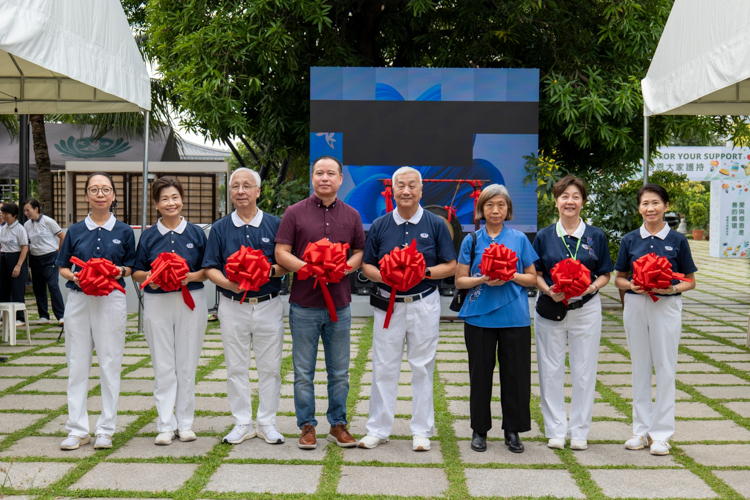 Tzu Chi volunteers headed by Tzu Chi Philippines CEO Henry Yuñez (fourth from right) is flanked by special guests Richard Aquino and Carmen Sy (fourth and sixth from left, respectively) at the ribbon-cutting rites of Fiesta Verde 2024.
Tzu Chi volunteers headed by Tzu Chi Philippines CEO Henry Yuñez (fourth from right) is flanked by special guests Richard Aquino and Carmen Sy (fourth and sixth from left, respectively) at the ribbon-cutting rites of Fiesta Verde 2024.
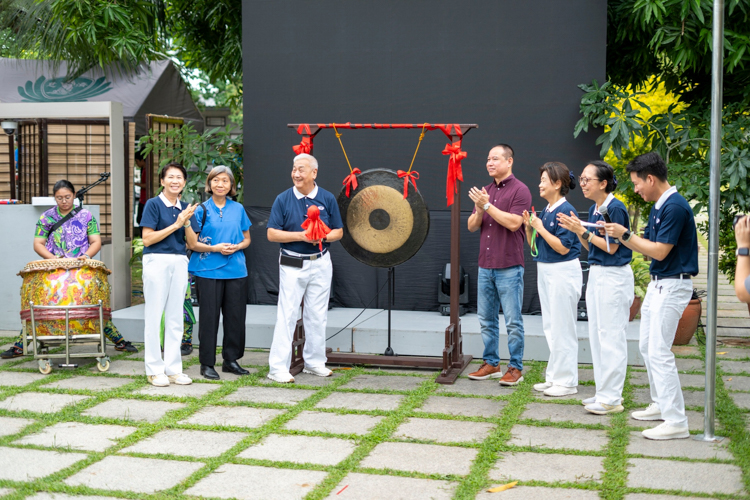 Tzu Chi Philippines CEO Henry Yuñez (third from left) strikes a gong, ushering good luck before the official opening of Fiesta Verde 2024.
Tzu Chi Philippines CEO Henry Yuñez (third from left) strikes a gong, ushering good luck before the official opening of Fiesta Verde 2024.
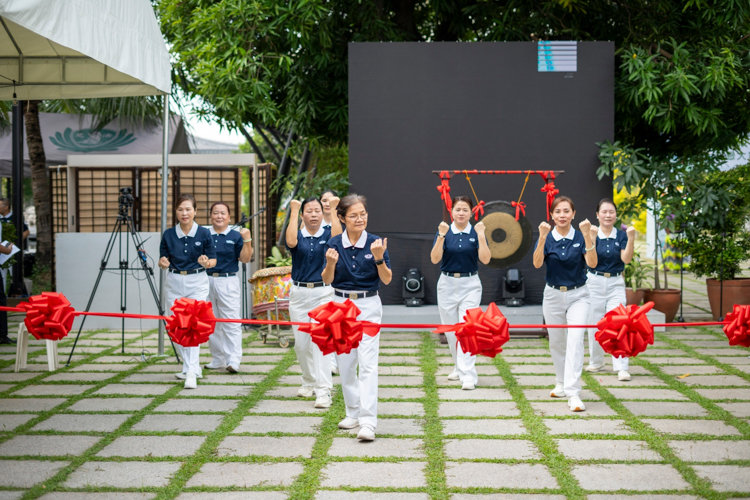 Tzu Chi volunteers help kick off the launch of Fiesta Verde 2024 with light exercises.
Tzu Chi volunteers help kick off the launch of Fiesta Verde 2024 with light exercises.
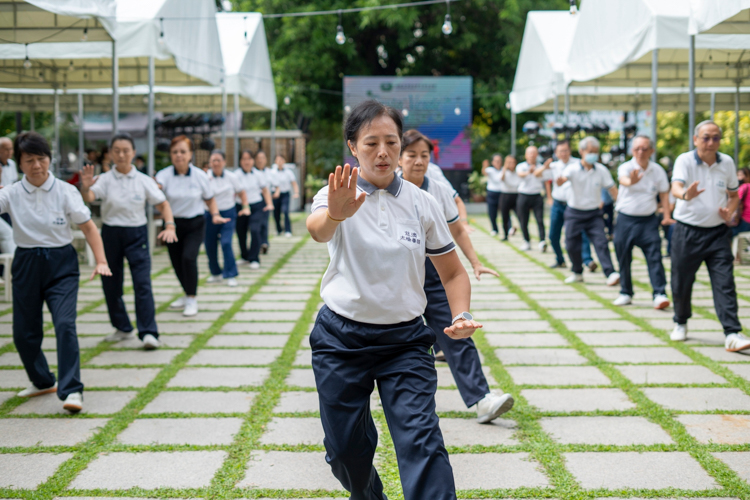 Members of the Tai Chi group perform during Fiesta Verde 2024.
Members of the Tai Chi group perform during Fiesta Verde 2024.
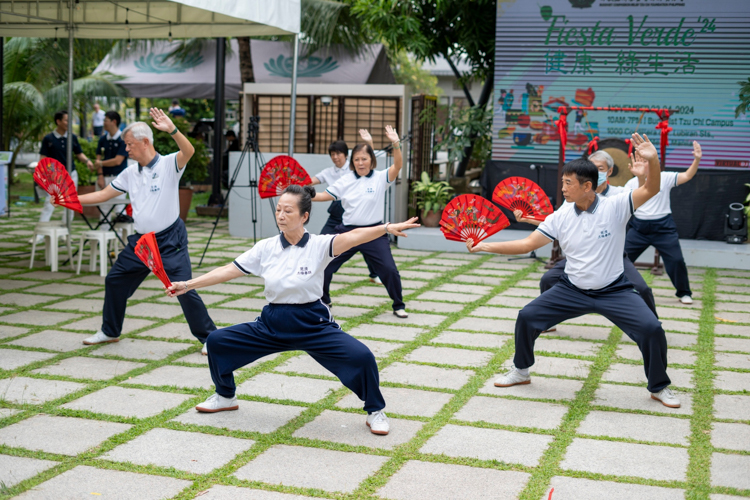 Members of the Tai Chi group perform during Fiesta Verde 2024.
Members of the Tai Chi group perform during Fiesta Verde 2024.
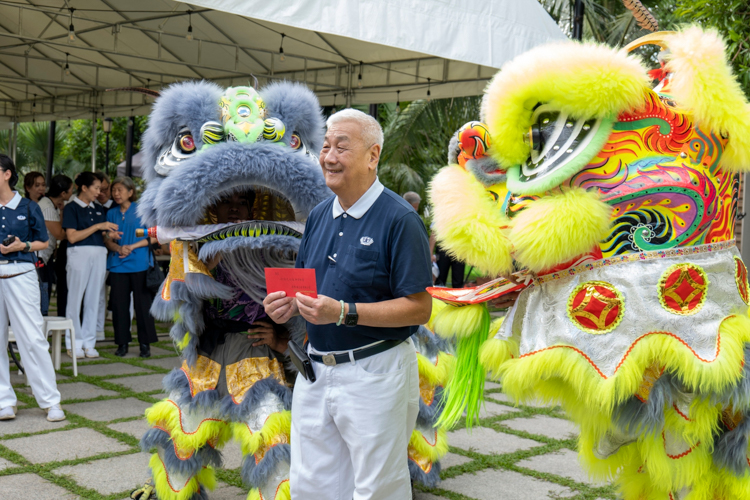 Tzu Chi Philippines Henry Yuñez presents ampao (red envelope) to the Li Qiang Wushu Dragon Lion Dance Sports Association.
Tzu Chi Philippines Henry Yuñez presents ampao (red envelope) to the Li Qiang Wushu Dragon Lion Dance Sports Association.
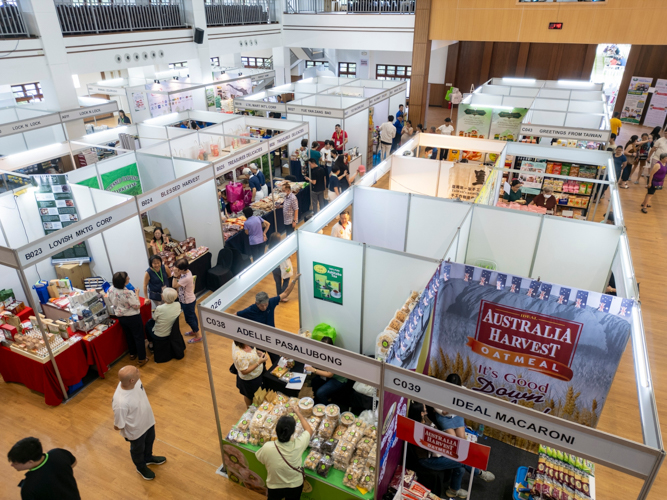 Ninety-two Fiesta Verde 2024 exhibitors were found all over the Buddhist Tzu Chi Campus, including the Jing Si Auditorium, where shoppers could find dry goods.
Ninety-two Fiesta Verde 2024 exhibitors were found all over the Buddhist Tzu Chi Campus, including the Jing Si Auditorium, where shoppers could find dry goods.
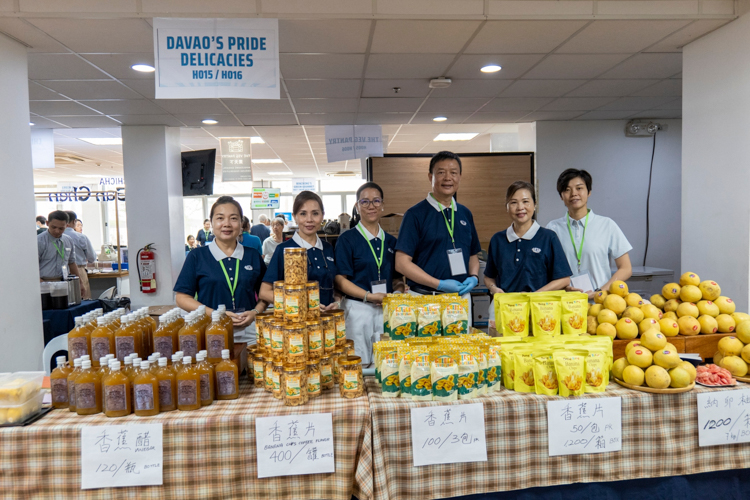 Tzu Chi Davao volunteers led by Officer in Charge Nelson Chua (third from right) present quality treats from Davao.
Tzu Chi Davao volunteers led by Officer in Charge Nelson Chua (third from right) present quality treats from Davao.
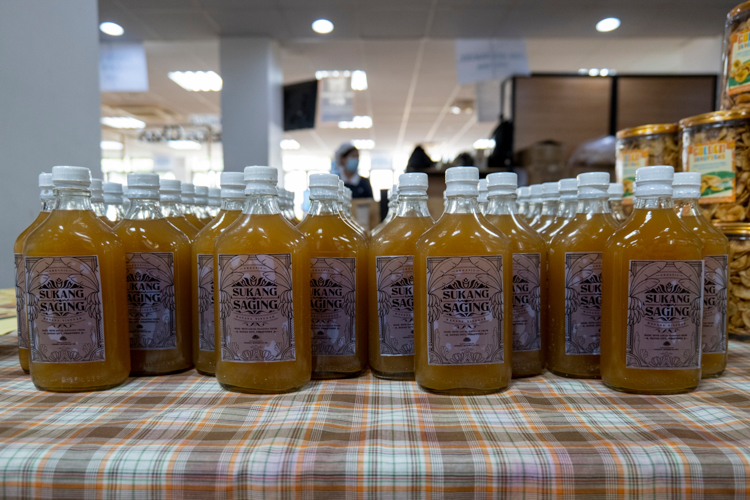 Banana vinegar, anyone? The main ingredient of this unusual and surprisingly tasty condiment is the Cardava banana, planted and harvested by the Ata Manobo indigenous people.
Banana vinegar, anyone? The main ingredient of this unusual and surprisingly tasty condiment is the Cardava banana, planted and harvested by the Ata Manobo indigenous people.
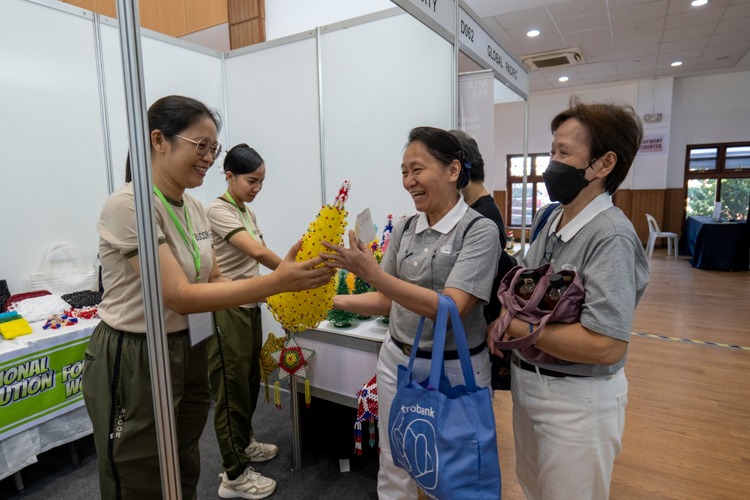 Correctional Institution of Women’s Melanie Mapili (left) sells a Christmas tree to Tzu Chi volunteers.
Correctional Institution of Women’s Melanie Mapili (left) sells a Christmas tree to Tzu Chi volunteers.
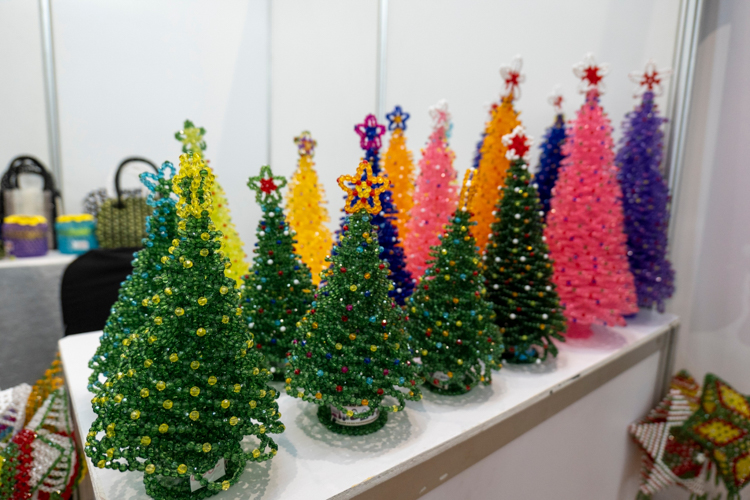 These festive Christmas trees were assembled by the female Persons Deprived of Liberty (PDL) of the Correctional Institution of Women (CIW) using clear and colorful beads. “You can also see the joy in their faces when they’re told that what they made was bought and liked by someone from the outside world,” says CIW’s Melanie Mapili.
These festive Christmas trees were assembled by the female Persons Deprived of Liberty (PDL) of the Correctional Institution of Women (CIW) using clear and colorful beads. “You can also see the joy in their faces when they’re told that what they made was bought and liked by someone from the outside world,” says CIW’s Melanie Mapili.
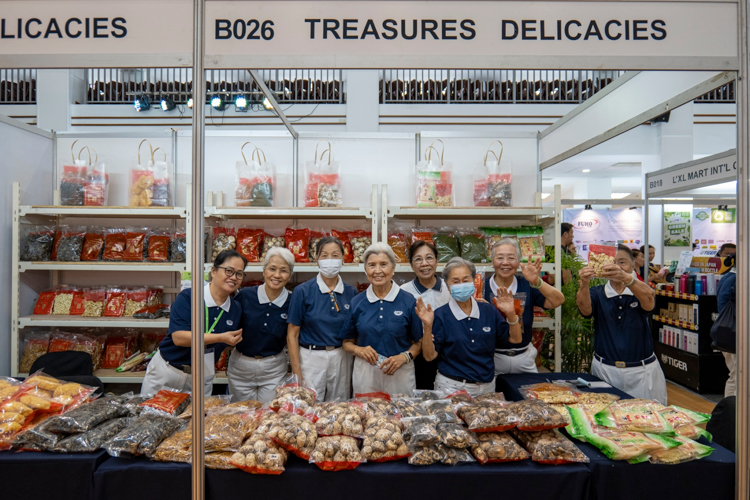 Tzu Chi Philippines’ first CEO Linda Chua helps man Treasures Delicacies, a booth selling vegetarian ingredients.
Tzu Chi Philippines’ first CEO Linda Chua helps man Treasures Delicacies, a booth selling vegetarian ingredients.
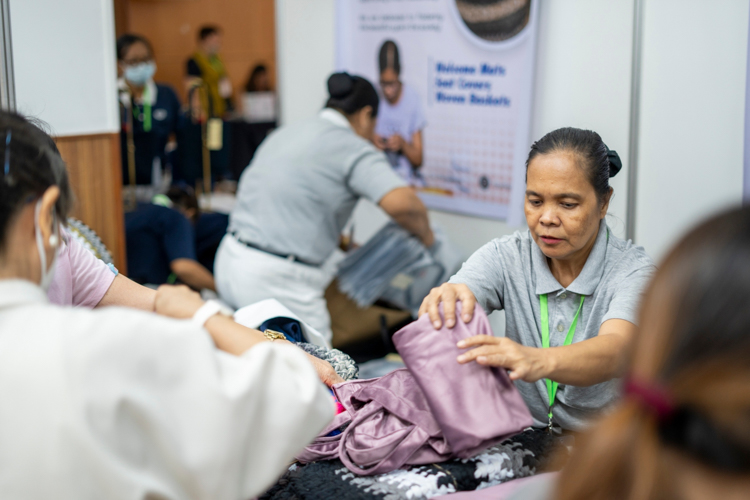 At the Waste to Wonder booth, Lina Lajara assists shoppers. A Tzu Chi volunteer since 2013, she participates in the foundation’s upcycling program, weaving floor mats and stool covers with the excess material of sports socks.
At the Waste to Wonder booth, Lina Lajara assists shoppers. A Tzu Chi volunteer since 2013, she participates in the foundation’s upcycling program, weaving floor mats and stool covers with the excess material of sports socks.
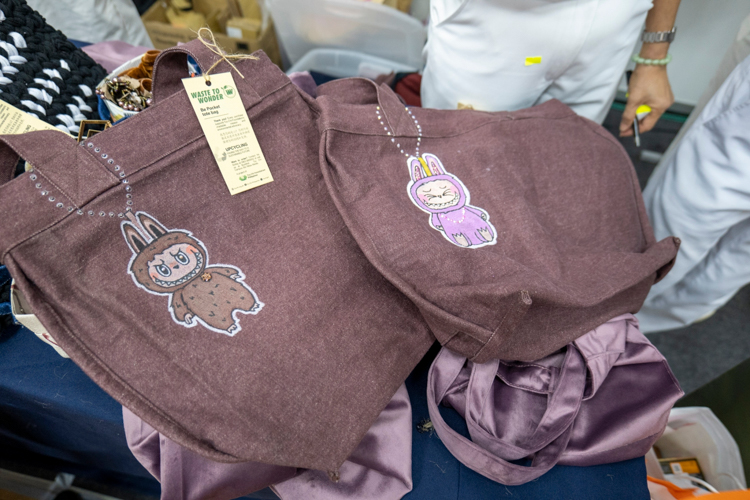 Made by the wives and single mothers of Tzu Chi Palo Great Love Village, these durable tote bags from Waste to Wonder come in plain colored denim or hand-painted design by artist and designer Cindy Ng Siy.
Made by the wives and single mothers of Tzu Chi Palo Great Love Village, these durable tote bags from Waste to Wonder come in plain colored denim or hand-painted design by artist and designer Cindy Ng Siy.
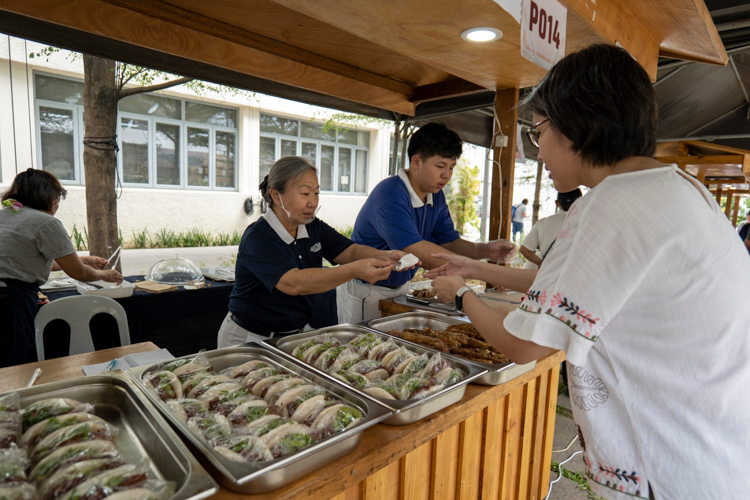 The food booths at the plaza were bustling with customers. Vegetarian cuapao was among the fast-selling fare.
The food booths at the plaza were bustling with customers. Vegetarian cuapao was among the fast-selling fare.
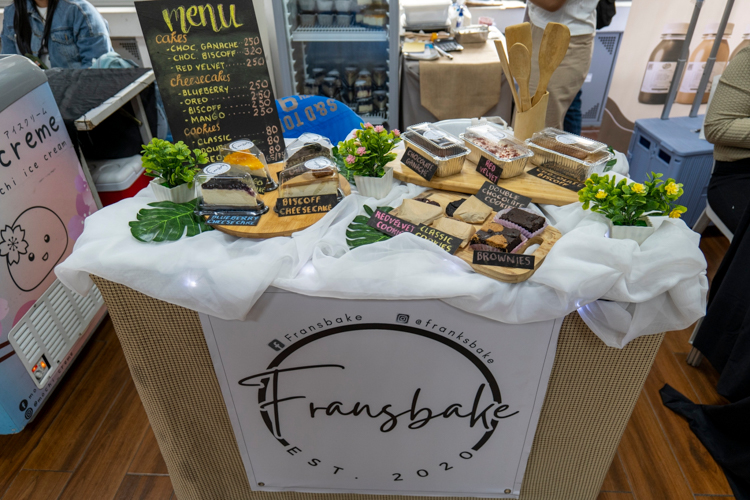 Sweet treats also did well at Fiesta Verde 2024. Fransbake sells an assortment of cookies, cakes, and cheesecakes.
Sweet treats also did well at Fiesta Verde 2024. Fransbake sells an assortment of cookies, cakes, and cheesecakes.
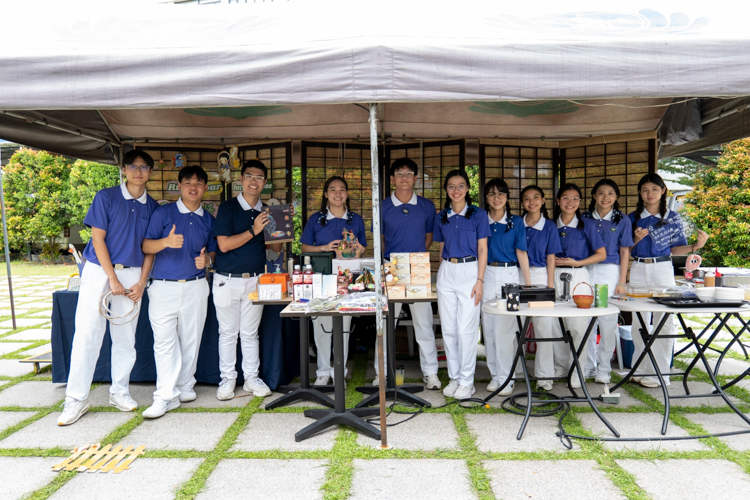 Tzu Chi Youth’s stall sold shaved ice and attracted guests with its games and products.
Tzu Chi Youth’s stall sold shaved ice and attracted guests with its games and products.
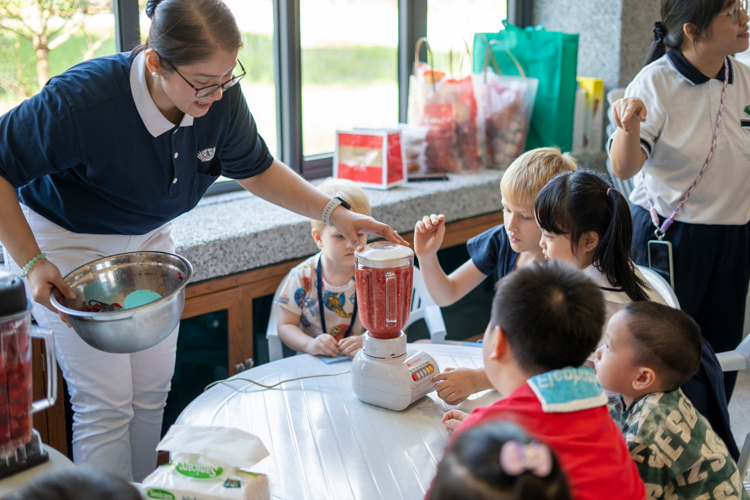 Inside Unity Hall, Jane Sy, directress of Tzu Chi Great Love Preschool Philippines (left) led a roster of activities for kids.
Inside Unity Hall, Jane Sy, directress of Tzu Chi Great Love Preschool Philippines (left) led a roster of activities for kids.
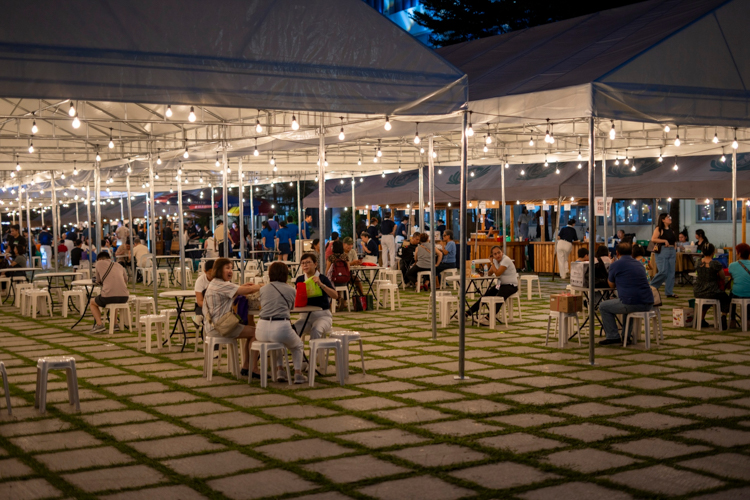 Shoppers came at all hours, including the evening when guests enjoyed a vegetarian dinner at the plaza under lighted canopies.
Shoppers came at all hours, including the evening when guests enjoyed a vegetarian dinner at the plaza under lighted canopies.
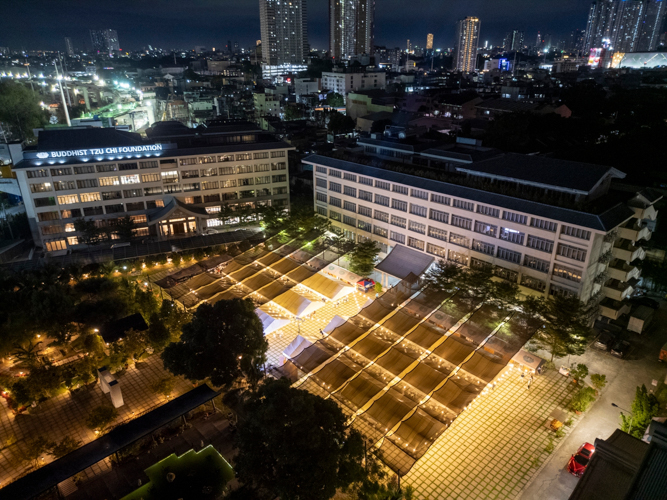 A night shot of Fiesta Verde 2024 at Buddhist Tzu Chi Campus
A night shot of Fiesta Verde 2024 at Buddhist Tzu Chi Campus
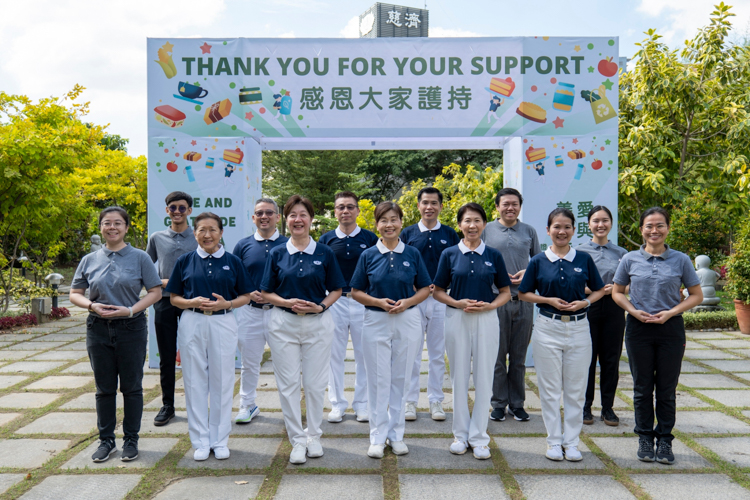 Tzu Chi volunteer Molita Chua (front row, fourth from left) is head of Fiesta Verde 2024’s core group of organizers.
Tzu Chi volunteer Molita Chua (front row, fourth from left) is head of Fiesta Verde 2024’s core group of organizers.
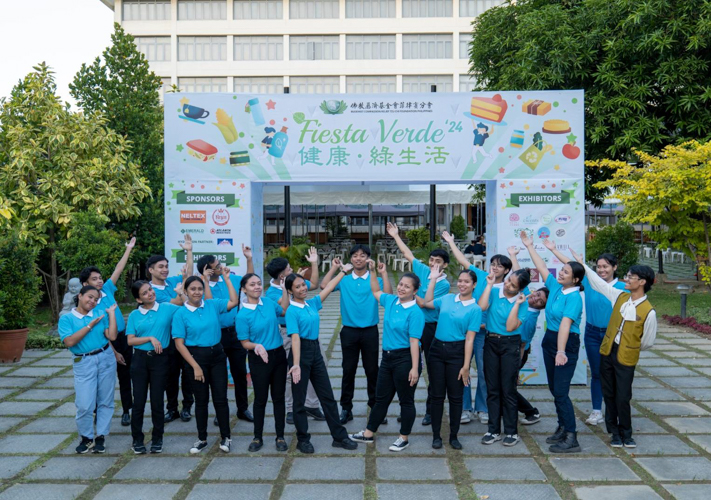 Tzu Chi scholars volunteered in various areas of Fiesta Verde, from handling the cash payment to selling goods.
Tzu Chi scholars volunteered in various areas of Fiesta Verde, from handling the cash payment to selling goods.
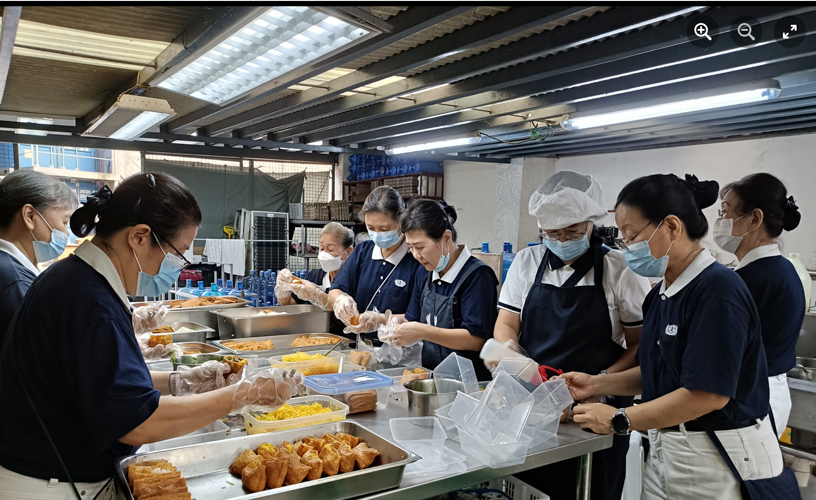 Tzu Chi’s kitchen volunteers worked as early as 4 am to come up with their delectable vegetarian dishes. (Photo from Lily C. Ang)
Tzu Chi’s kitchen volunteers worked as early as 4 am to come up with their delectable vegetarian dishes. (Photo from Lily C. Ang)
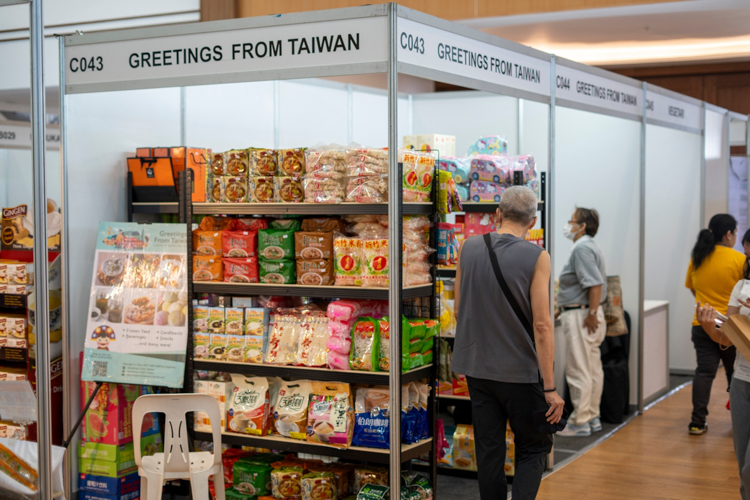 Guests enjoyed exploring the booths and goods offered by Fiesta Verde 2024's 92 exhibitors.
Guests enjoyed exploring the booths and goods offered by Fiesta Verde 2024's 92 exhibitors.
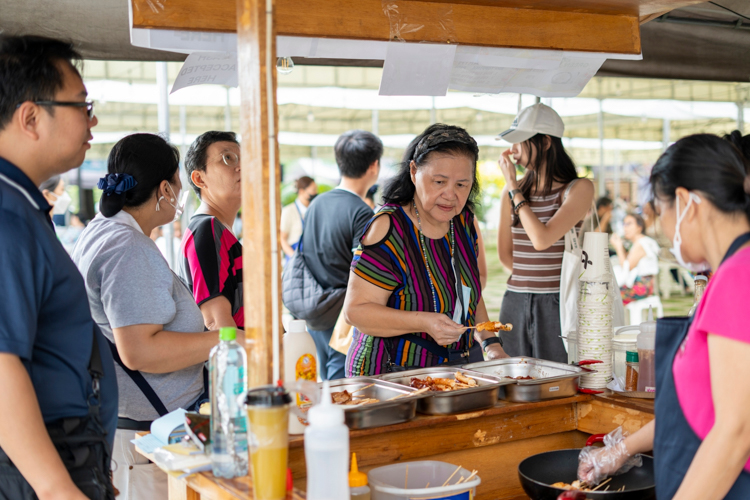 Guests enjoyed exploring the booths and goods offered by Fiesta Verde 2024's 92 exhibitors.
Guests enjoyed exploring the booths and goods offered by Fiesta Verde 2024's 92 exhibitors.
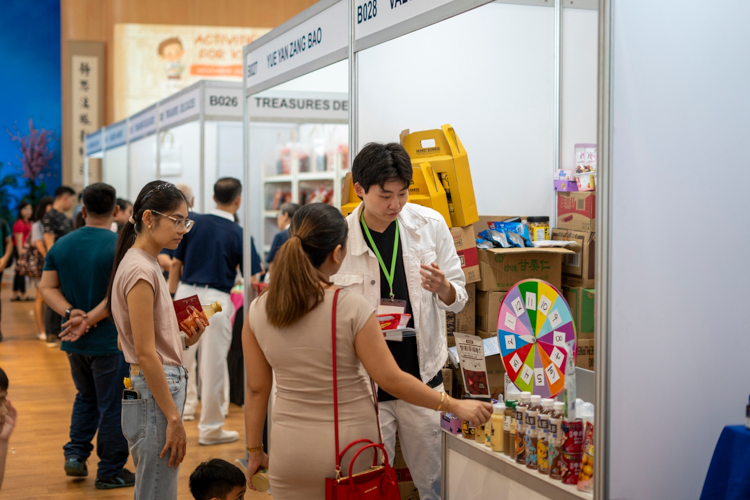 Guests enjoyed exploring the booths and goods offered by Fiesta Verde 2024's 92 exhibitors.
Guests enjoyed exploring the booths and goods offered by Fiesta Verde 2024's 92 exhibitors.
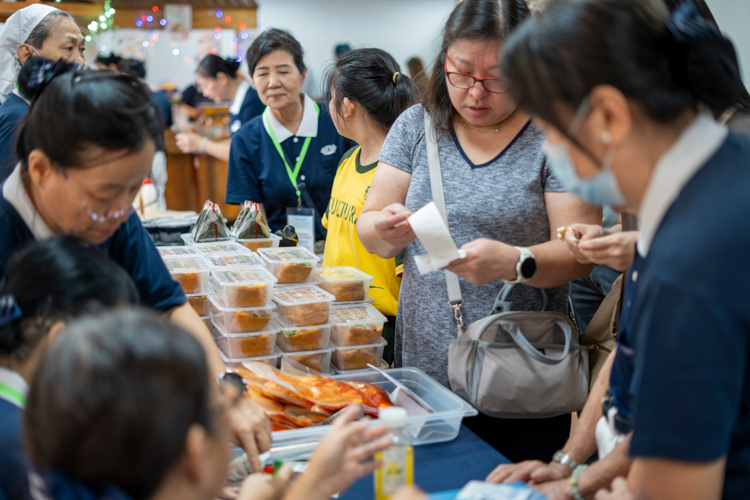 Guests enjoyed exploring the booths and goods offered by Fiesta Verde 2024's 92 exhibitors.
Guests enjoyed exploring the booths and goods offered by Fiesta Verde 2024's 92 exhibitors.
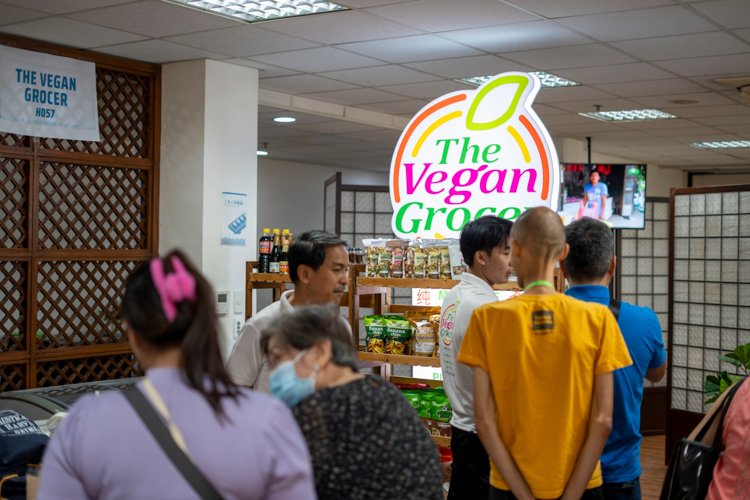 Guests enjoyed exploring the booths and goods offered by Fiesta Verde 2024's 92 exhibitors.
Guests enjoyed exploring the booths and goods offered by Fiesta Verde 2024's 92 exhibitors.





